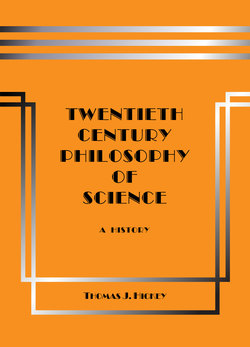Читать книгу Twentieth-Century Philosophy of Science: A History (Third Edition) - Thomas J. Hickey - Страница 21
На сайте Литреса книга снята с продажи.
Criticism:
ОглавлениеThe positivists’ criterion for criticism is publicly accessible observation expressed in language containing only “observation terms”.
They believed that empirical laws indirectly and tentatively warrant theories, when the laws can be logically derived from the theories.
Like Hume they deny that either laws or theories can be permanently validated empirically, but they require that the general laws be founded in observation as a condition for the objectivity needed for valid science. They maintain that particularly quantified observation statements describing singular events are incorrigible and beyond revision.
Unlike empirical laws, theories are not produced by induction from singular observations.
Theories are indirectly and tentatively warranted by empirical laws, when valid laws can be logically derived from the theories.
Positivists reject the romantics’ verstehen thesis of criticism. They argue that empathy is not a reliable tool, and that the methods of obtaining knowledge in the social sciences are the same as those used in the physical sciences. They note that subjective verstehen may easily involve erroneous transfer of the idiosyncrasies of the observer’s experiences to the subject of observation.
